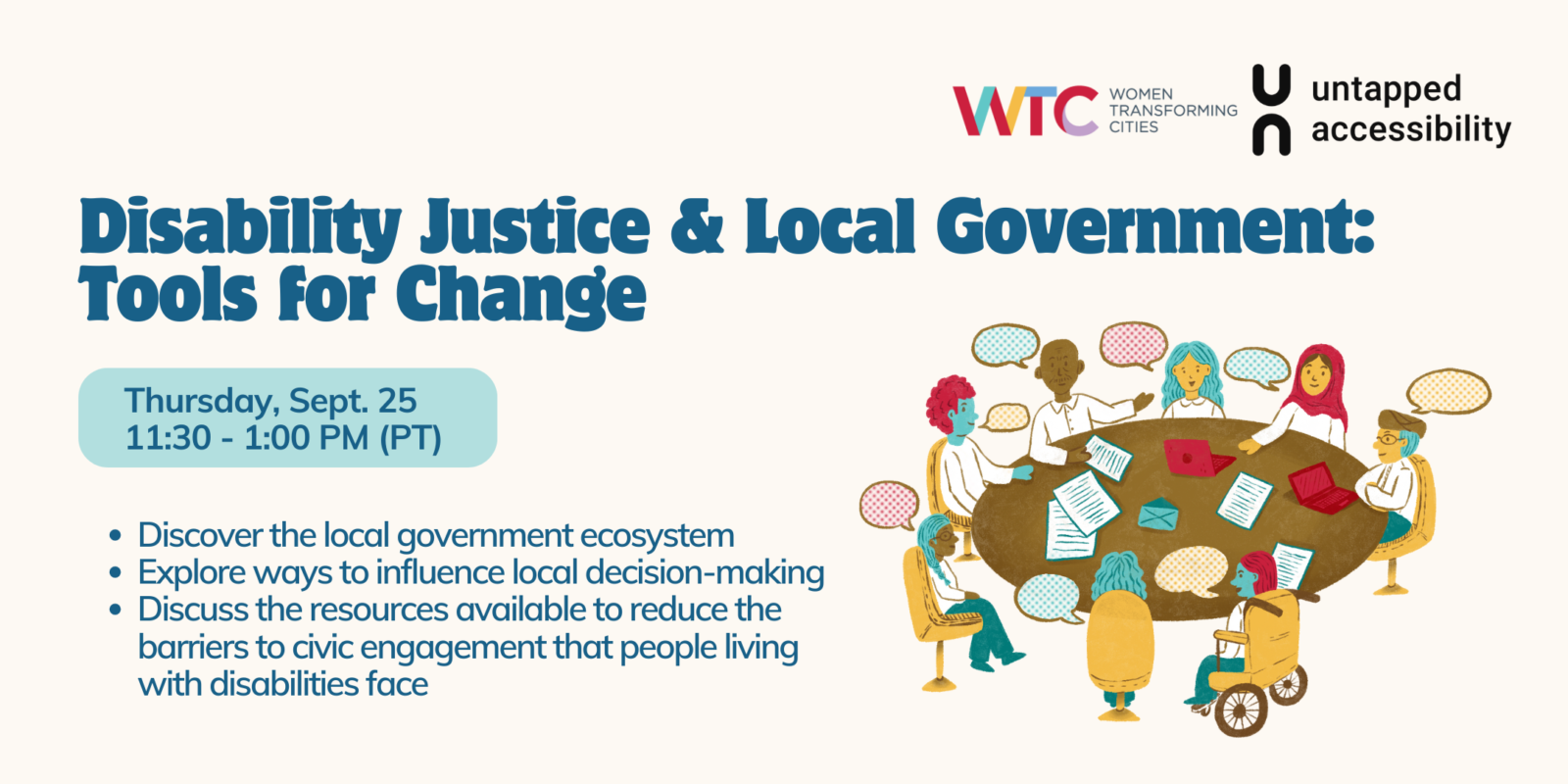Webinar recap: Disability justice and local government session with Women Transforming Cities

Practical advice and tips to influence disability justice
Untapped Accessibility and Women Transforming Cities co-hosted Disability justice and local government: Tools for justice webinar on September 25.
WTC’s Florence Li gave practical tips to engage with local governments to influence disability policy. Sarah Molder of Untapped Accessibility gave an overview of the regulatory framework in B.C.
Making local government work for disability justice
Disability justice is about more than accessibility—it’s about equity, inclusion, and ensuring disabled voices are heard in decision-making. A recent webinar explored how individuals and communities can influence local government to better support disability rights and justice.
Overview of Accessible BC Act
Prescribed organizations, including local governments, must proactively identify, prevent, and remove barriers to services, products, and public spaces.
Under the Accessible BC Act (Act), organizations must:
- Prepare and publish an accessibility plan and update it every three years.
- Establish feedback mechanisms to allow members of the public to report barriers they experience when interacting with the organization.
- Establish an accessibility committee and consult them on how to identify, prevent, and remove barriers. The committee must include a majority of members with lived experience of disability.
The Act requires organizations to focus on:
- A social model understanding of disability, not medical model, for compliance
- Involving persons with disabilities to inform public policy, design services
Why it matters
- 72% of disabled people in B.C. face barriers that limit their civic participation.
- 1 in 3 experience frequent systemic and attitudinal challenges.
- Nearly half of British Columbians want to be more involved in their communities but are held back by accessibility issues.
Principles of disability justice
The movement is guided by 10 principles, including but not limited to: intersectionality, leadership of those most impacted, collective access, and cross-disability solidarity. These principles remind us that disability justice is deeply connected to other social justice movements.
How local government works
Local governments—like city councils, school boards, and park boards—are the closest level of government to the public. They make decisions about roads, parks, emergency services, and more. Elected officials (mayors, councillors) and staff departments (planning, recreation) all play roles in shaping policy.
Getting involved
There are four key stages where you can influence decisions:
- Vision – Council sets priorities.
- Planning – Staff consult with the public.
- Decision – Council votes.
- Implementation – Staff carry out the plan.
You can participate by:
- Attending public consultations or council meetings
- Joining advisory committees
- Giving feedback via city hotlines or accessibility forms
- Connecting with local councillors or advocacy groups
Practical tips to get involved
- Build relationships with allies at City Hall
- Choose feedback methods that suit your capacity
- Stay informed through local networks and resources
Some closing remarks and quotes from the attendees:
- “Local governments must start treating accessibility like the heartbeat of democracy itself.”
- “Despite the hard work, don’t give up.”
Learn more about disability justice
- WTC Civic Engagement Resources
- Free eLearning about Effective Accessibility Committees
- DABC Honoraria Guidelines
Contact us
Reach out to start the conversation on how we can help your organization reach beyond compliance with accessibility legislation to create a truly inclusive community.
